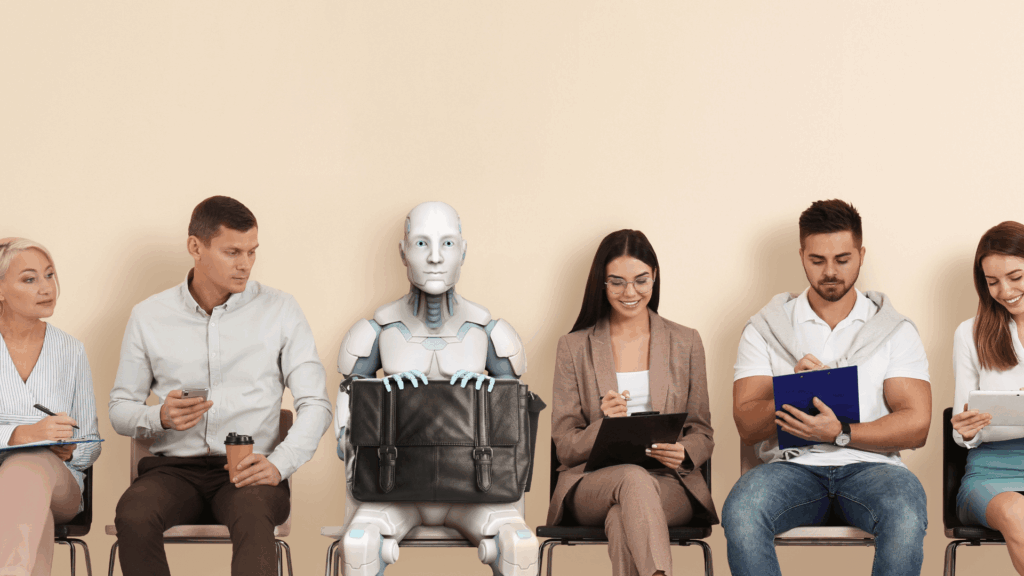
Human Judgment for AI-Driven Hiring
Why human judgment remains irreplaceable in life sciences recruitment—especially as AI transforms discovery
Artificial intelligence (AI) is rapidly reshaping the landscape of life sciences R&D. Algorithms are predicting molecular behaviour, identifying new drug targets, and designing clinical trial protocols with unprecedented speed. Entire stages of drug discovery that once took years now take months—or weeks. Yet, amid this transformation, one thing remains constant: the need for human judgment in hiring the right scientific and regulatory talent.
In an industry where innovation and compliance must co-exist, the rise of AI doesn’t reduce the complexity of hiring—it amplifies it. AI might accelerate the discovery process, but it cannot evaluate leadership, cultural fit, ethical reasoning, or the interpersonal nuance required in regulatory negotiations or clinical trial management.
That’s why human-centred hiring is not just still relevant—it’s never been more critical.
AI in Drug Discovery: A Paradigm Shift
Let’s start with what’s changed. The application of AI in early-stage drug development has revolutionized how compounds are identified and validated. Companies like Insilico Medicine and Recursion Pharmaceuticals are using machine learning models to screen billions of molecular combinations and predict their therapeutic potential. These tools can analyse datasets far beyond human capacity, bringing efficiency, cost reduction, and speed to drug pipelines.
In clinical development, AI-powered platforms are being used to identify suitable trial participants, predict adverse events, and monitor trial data in real-time. Regulatory agencies, too, are experimenting with AI to review data submissions faster and flag inconsistencies.
There’s no doubt that AI is transforming the what and how of life sciences work.
But when it comes to who performs that work, especially in regulatory, clinical, and translational functions, the human element is irreplaceable.
Why Human Judgment Still Matters
AI doesn’t understand nuance. It doesn’t evaluate stakeholder politics or ethical grey areas. It doesn’t know what makes a strong regulatory affairs lead or how a clinical project manager will handle a trial site emergency. In high-stakes, people-led domains like regulatory strategy, clinical operations, and translational medicine, hiring decisions require a level of discernment only humans can provide.
Here’s why:
- Regulatory Strategy Is Human-Centric
Regulatory science is not a mechanical process—it’s a negotiation. It involves building relationships with regulators, interpreting evolving frameworks, and shaping submissions that meet both legal and clinical standards. The ideal hire must not only have technical expertise but also political acumen, communication skills, and cross-functional leadership. No algorithm can fully assess that combination.
- Clinical Operations Require People Skills
Clinical trials rely on networks of stakeholders—CROs, investigators, participants, sponsors. Success depends on emotional intelligence, conflict resolution, and the ability to inspire trust. AI can optimise trial design, but the human running that trial must be able to problem-solve in real time and manage diverse personalities under pressure.
- Translational Science Bridges Two Worlds
The translational function sits between bench and bedside, integrating data from discovery and clinical domains. These roles require scientific depth and commercial foresight. Hiring for this hybrid skill set involves understanding not just experience, but mindset. That insight rarely lives in a résumé—and cannot be quantified by machine.
AI as an Enabler, Not a Replacement
This isn’t a call to resist AI—it’s an invitation to embrace it as a tool that supports human decision-making. Smart recruitment functions are already integrating AI-driven insights to enhance, not replace, the hiring process:
Candidate Sourcing: AI helps identify passive candidates through pattern recognition in scientific publications, patents, or grant databases.
Talent Mapping: AI tools analyse competitor hiring trends and skills gaps across regions to build strategic talent pipelines.
Bias Reduction: When carefully implemented, AI can help minimise unconscious bias by standardising candidate screening processes.
At Skills Alliance, we’ve integrated AI into our talent intelligence framework to accelerate shortlisting and improve hiring precision. But final hiring decisions—especially in regulatory, clinical, and translational roles—always involve deep human engagement.
Our recruiters don’t just assess skills. They assess motivation, leadership potential, alignment with company culture, and a candidate’s ability to thrive in ambiguity—traits AI still cannot judge.
The Future of Hiring Is Hybrid
The future of talent in life sciences isn’t machine-led or human-only. It’s hybrid. AI enables scale, speed, and deeper data insight. But human-centred hiring ensures quality, context, and connection—especially for roles where science, strategy, and storytelling intersect.
As biotech and pharma companies race to bring therapies to market faster, the cost of a bad hire—especially in regulatory or clinical leadership—has never been higher. That’s why smart companies will continue to invest in specialist recruitment partners who blend AI efficiency with human expertise.
In an AI-led R&D world, people still matter most.
By Amber Hayes, Team Lead, Skills Alliance





